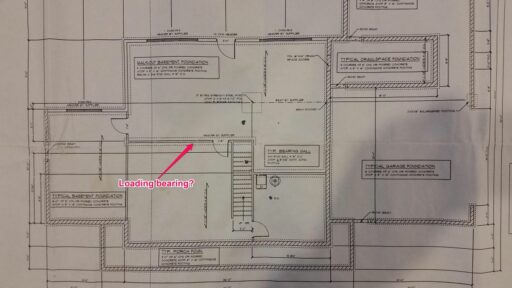The Alabama General Contractors Board plays a pivotal role in overseeing the construction industry within the state. This board is responsible for the licensing, regulation, and enforcement of standards that ensure the safety, reliability, and professionalism of construction services. Understanding the board’s functions, requirements, and resources is crucial for contractors operating in Alabama. This article delves into the various aspects of the board’s activities, from the issuance of licenses to the enforcement of compliance and the provision of educational materials for contractors.
Key Takeaways
- The Alabama General Contractors Board is the authority responsible for licensing and regulating the construction industry in Alabama, ensuring that contractors meet the necessary legal and professional standards.
- Contractors must obtain the appropriate class of license (A, B, or C) by passing exams on board regulations, business management, and trade-specific knowledge, with pre-approval required to sit for the exams.
- The board enforces compliance through monitoring, auditing, and handling violations with penalties, while also providing channels for dispute resolution and adjudication.
- Educational resources are available to help contractors prepare for licensing exams, and the board supports contractors post-examination with ongoing education and resources.
- The Alabama General Contractors Board collaborates with national and state regulatory bodies, such as the Associated General Contractors of America and the National Association of State Contractors Licensing Agencies, to align standards and practices.
Overview of the Alabama General Contractors Board

History and Establishment
The Alabama General Contractors Board was established to regulate the construction industry within the state, ensuring that all contractors meet the necessary standards for safety and professionalism. The Board serves as a cornerstone in maintaining the integrity of the construction sector by setting and enforcing regulations that all contractors must adhere to.
The Board’s history is rooted in the state’s commitment to protect the public and improve the quality of construction services. Over the years, it has evolved to address the changing needs of the industry and the public it serves. The establishment of the Board was a significant step in formalizing the construction industry’s standards and practices, providing a framework for accountability and excellence.
The Board’s ongoing mission is to safeguard the interests of both consumers and contractors, ensuring a fair and competitive market.
The Board’s role has been instrumental in shaping the construction landscape in Alabama, reflecting the state’s dedication to upholding high standards in construction practices.
Mission and Responsibilities
The Alabama General Contractors Board plays a pivotal role in maintaining the integrity of the construction industry within the state. The Board’s mission is to safeguard the public by ensuring that only qualified contractors are licensed to perform construction work. This is achieved through a comprehensive system of licensing, which includes rigorous testing to assess the competency of contractors.
The Board’s responsibilities extend beyond licensing to include the enforcement of state regulations and standards. It ensures compliance with state regulations through licensing, permitting, and certification processes for contractors in various construction activities, emphasizing safety and professionalism. The Board also provides oversight and regulation to ensure that construction projects adhere to the established codes and safety guidelines.
- Establishing and maintaining licensing standards
- Enforcing construction regulations
- Certifying contractors for various construction activities
- Promoting safety and professionalism in the industry
The Board’s commitment to these responsibilities ensures that the construction industry operates with a high level of integrity and quality, protecting the interests of both consumers and construction professionals.
Structure and Governance
The Alabama General Contractors Board is structured to ensure effective governance and oversight of the construction industry within the state. The Board is composed of appointed members who represent various sectors of the construction industry. These members are tasked with upholding the Board’s mission to regulate the industry, enforce standards, and ensure the safety and welfare of the public.
The governance of the Board is characterized by a set of procedures and policies that guide its operations. The Board’s activities are informed by the ‘MANUAL of PROCEDURES of the STATE of ALABAMA’, which outlines the basic functions and codes necessary for construction management. This includes the adoption of a State Building Code, which is a critical aspect of the Board’s regulatory function.
The Board’s governance model is designed to be transparent and accountable, with a focus on maintaining high standards of professional conduct among licensed contractors.
The following list provides an overview of the key components of the Board’s structure:
- Executive Committee
- Various Subcommittees
- Administrative Staff
- Advisory Councils
- Regular Board Meetings
Licensing and Regulatory Framework

Types of Licenses Issued
The Alabama General Contractors Board issues a variety of licenses to ensure that individuals and companies operating in the construction industry meet the necessary standards of professionalism and safety. The types of licenses issued can be broadly categorized into company licenses and individual licenses.
Company licenses cover a range of specialties, including but not limited to:
- Asbestos Services Company
- Electrical Contracting Company
- Fire Protection Contractor Company
- General Contractor Company
- Home Improvement Contractor Company
- Mechanical/HVAC Contractor Company
- Plumbing Contractor Company
Individual licenses are also diverse, catering to specific roles within the construction sector:
- Asbestos Services Individual
- Electrician
- Fire Protection Contractor Individual
- Mechanical/HVAC Technician
It is crucial for contractors to obtain the appropriate license before commencing any construction-related activities, as operating without one can lead to significant legal and financial repercussions.
Licensing Requirements and Procedures
To practice as a general contractor in Alabama, individuals must navigate a series of licensing requirements and procedures. The process begins with the submission of various documents, including a letter of intent, relevant corporate certificates, and proof of insurance. For corporations, a Clerk’s Certificate and a list of managers are necessary, while LLCs must provide their operating agreement.
The state of Alabama categorizes contractors based on the level of work they perform, which dictates the specific licensing requirements. For instance, a Class C contractor must complete an 8-hour pre-licensing course, pass any specialty exams, and show 2 years of experience. The requirements escalate for Class B contractors, who must demonstrate 3 years of experience and a net worth of at least $15,000.
The Alabama General Contractors Board ensures that all applicants meet the stringent criteria before issuing a license, which includes passing the Alabama Business and Law exam among other requirements.
A variety of licenses are issued, ranging from Masonry and Mechanical Contractor Company Licenses to more specialized ones like Solar Contractor Company Licenses. Each category may have its own set of exams and prerequisites, emphasizing the board’s commitment to upholding high standards in the construction industry.
Renewal and Continuing Education
The Alabama General Contractors Board mandates that licenses, initially issued for a three-year term, must be renewed biennially. Renewal applications are accompanied by a fee and can be submitted via mail or online. Notices for renewal are proactively sent to licensees 60 days before expiration, including a registration code for online renewal.
Continuing education is a critical component for maintaining a license in good standing. Contractors are required to fulfill a certain number of education hours to stay abreast of industry standards and regulatory changes. The Board provides a variety of resources to assist contractors in meeting their educational requirements, including access to a construction library, virtual trainings, and a resource center.
The commitment to continuing education ensures that contractors remain competent and competitive, reflecting the Board’s dedication to public safety and professional development.
Fees for continuing education courses vary, and contractors can choose from a range of topics relevant to their field. The Board’s website offers a filterable course list, allowing contractors to easily find and enroll in the necessary courses to complete their continuing education credits.
Enforcement and Compliance

Monitoring and Auditing Practices
The Alabama General Contractors Board ensures that construction projects adhere to the highest standards through rigorous monitoring and auditing practices. Regular inspections and audits are conducted to verify compliance with state regulations and licensing requirements. These practices are designed to maintain the integrity of the construction industry and protect the interests of all stakeholders involved.
- Initial site inspections are performed to establish baseline compliance.
- Ongoing audits check for continued adherence to safety and quality standards.
- Final inspections confirm that all work meets the regulatory and contractual obligations.
The effectiveness of monitoring and auditing practices is crucial for the prevention of construction malpractices and the promotion of a safe building environment. This proactive approach helps in identifying potential issues before they escalate into major problems, ensuring that contractors uphold the law and best practices at all times.
Handling of Violations and Penalties
The Alabama General Contractors Board ensures that all construction activities adhere to the established standards and regulations. Violations of these standards can lead to serious penalties, including fines and stop work orders (SWOs). The process of handling violations typically involves several steps:
- Correct the Violations: Contractors must promptly address any issues that led to the violation. This may involve redoing work to comply with codes or holding subcontractors accountable.
- Document the Process: Maintaining thorough documentation is crucial for effective communication and protecting the contractor’s financial interests.
- Pay the Fees: After corrections are certified, violators are required to pay any fines. This may also involve a hearing to determine the appropriate penalties.
The goal of the Board is not only to enforce regulations but also to guide contractors towards compliance, ensuring the safety and integrity of construction projects.
Penalties are structured to reflect the severity of the infraction and the contractor’s history of compliance. For instance, a first-time offense may result in a smaller fine, whereas repeated violations could lead to escalating penalties, potentially reaching significant amounts for serious or continuous non-compliance.
Dispute Resolution and Adjudication
The Alabama General Contractors Board plays a pivotal role in resolving disputes that arise within the construction industry. Dispute resolution mechanisms are designed to be fair, efficient, and less formal than court proceedings. The Board offers various avenues for adjudication, including mediation, arbitration, and administrative hearings, to address grievances between parties.
The goal is to ensure that all parties have access to a process that is not only just but also expeditious and cost-effective.
The process typically follows these steps:
- Filing a complaint or dispute notice with the Board.
- Preliminary assessment and mediation efforts.
- If unresolved, moving to formal arbitration or an administrative hearing.
- Issuance of a decision by the Board, which may include corrective actions or penalties.
The Board’s decisions can be appealed to the state court system, providing an additional layer of oversight and ensuring adherence to legal standards.
Educational Resources and Examination

Preparation Materials for Licensing Exams
The journey to becoming a licensed general contractor in Alabama is marked by a series of examinations designed to assess a candidate’s knowledge and skills. Preparation is key, and the Alabama General Contractors Board provides a range of materials to support applicants. These include detailed study guides, highlighting guides, and practice quizzes that cover the various aspects of the exams.
Candidates must complete an 8-hour pre-licensing course and pass the necessary exams, which may include General, Advanced, Law, and any specialty exams relevant to their trade. It is important to note that pre-approval from the State licensing board is required before taking the exam, which can be obtained by submitting a completed application.
The preparation materials are carefully designed to familiarize candidates with the format and content of the exams, although exact test questions are not provided as they are not released by the state.
For those seeking to meet the continuing education requirements for license renewal, the Board also offers courses that ensure contractors remain up-to-date with the latest codes and regulations.
Exam Overview and Content
The Alabama General Contractors Board ensures that all aspiring contractors are well-prepared for the challenges of the industry through a comprehensive examination process. The exam is designed to assess a candidate’s knowledge and skills in construction management, legal issues, and technical aspects of building.
Candidates must undergo a series of tests that include a significant focus on math and plans analysis. The exam is not only a measure of one’s ability to recall information but also to apply it in practical scenarios. To aid in preparation, the board provides highlighting guides and quizzes, although the exact test questions are not released to maintain the integrity of the exam.
The examination process is rigorous and requires thorough preparation. Candidates are encouraged to utilize all available resources to ensure they meet the eligibility criteria and are well-versed in the educational prerequisites.
It is important for applicants to obtain pre-approval from the State licensing board by submitting a completed application. This pre-approval is a crucial step in the journey to becoming a licensed general contractor in Alabama.
Support for Contractors Post-Examination
After successfully navigating the examination process, contractors in Alabama are not left to fend for themselves. The Alabama General Contractors Board provides ongoing support to ensure that contractors are well-equipped to thrive in the industry. Key resources are made available to assist with the transition from examination to active practice.
Contractors can access a variety of support services, including:
- Guidance on fulfilling continuing education requirements
- Updates on changes in construction regulations and codes
- Networking opportunities with other licensed professionals
- Assistance with license renewal and insurance requirements
The Board’s commitment to supporting contractors extends beyond the initial licensing phase. It aims to foster a community of well-informed and compliant professionals, contributing to the overall quality and safety of construction projects within the state.
The Alabama General Contractors Board’s proactive approach in offering post-examination support underscores its dedication to the professional development of contractors and the integrity of the construction industry.
Interactions with Other Regulatory Bodies

Collaboration with National and State Agencies
The Alabama General Contractors Board plays a pivotal role in aligning state construction regulations with national standards, ensuring a cohesive regulatory environment. Collaboration with various government agencies is essential to maintain consistency in safety, quality, and environmental standards across the construction industry.
- The Board works closely with small businesses to foster growth and compliance with federal and state regulations.
- It engages in governmentwide initiatives such as cybersecurity, climate action, and emergency response to enhance industry resilience.
- Through partnerships with entities like the Technology Modernization Fund and Federal identity programs, the Board ensures that contractors are up-to-date with the latest technological and security practices.
The synergy between the Alabama General Contractors Board and other regulatory bodies not only streamlines regulatory processes but also fortifies the industry against evolving challenges.
The Board’s cooperative efforts extend to educational and training programs, aiming to elevate the standards of practice within the construction sector. By navigating the complex web of federal and state construction regulations, the Board safeguards public safety and welfare while supporting the professional development of contractors.
Role in Public Safety and Welfare
The Alabama General Contractors Board plays a pivotal role in ensuring public safety and welfare through its regulatory functions. The Board’s authority to adopt building codes and standards is crucial in maintaining safe construction practices across the state. By setting and enforcing these standards, the Board helps to minimize risks associated with construction projects, thereby protecting both workers and the general public.
In addition to setting safety standards, the Board is also responsible for educating contractors on best practices and changes in regulations. This ongoing education helps to ensure that all contractors are up-to-date with the latest safety protocols and construction techniques.
The Board’s commitment to public safety extends beyond regulation and into proactive engagement with the construction community to foster a culture of safety and responsibility.
The Board’s role is not limited to the enforcement of safety standards but also includes active participation in the development of new safety protocols and emergency response strategies. This collaborative approach with other agencies ensures a comprehensive safety net for the construction industry in Alabama.
Navigating Federal and State Construction Regulations
The Alabama General Contractors Board plays a pivotal role in helping contractors navigate the complex landscape of federal and state construction regulations. Contractors must balance compliance with local mandates and national standards, which often involves understanding the nuances of various regulatory frameworks. For instance, the Federal Acquisition Regulation (FAR) 36.101 indicates that construction contracts are subject to broader FAR requirements, which contractors must follow diligently.
To ensure compliance, contractors are encouraged to familiarize themselves with a range of regulations, from safety codes and structural requirements to licensing laws and insurance mandates. The Board provides resources and guidance to facilitate this process, aiding contractors in meeting their legal obligations and maintaining high standards of practice.
In cases of non-compliance, such as licensing violations or safety breaches, state authorities may issue Stop Work Orders. These serve as a powerful tool to enforce regulations and protect public welfare. Contractors must be prepared to address any issues promptly to avoid project delays and potential penalties.
Conclusion
In conclusion, the Alabama General Contractors Board plays a pivotal role in ensuring the integrity and safety of construction projects within the state. Through its rigorous licensing requirements, examination processes, and adherence to building codes and regulations, the Board upholds high standards for contractors. The information provided in this article underscores the importance of compliance with the Board’s regulations and the need for contractors to stay informed about legal requirements and industry best practices. Whether you are a contractor seeking licensure or a homeowner embarking on a construction project, understanding the role of the Alabama General Contractors Board is essential for a successful and lawful building experience.
Frequently Asked Questions
What is the Alabama General Contractors Board and what are its responsibilities?
The Alabama General Contractors Board is a regulatory body responsible for overseeing the licensing and regulation of general contractors in Alabama. Its responsibilities include issuing licenses, enforcing compliance with state laws and regulations, and ensuring that contractors meet professional and ethical standards.
How does one obtain a general contractor license in Alabama?
To obtain a general contractor license in Alabama, applicants must meet certain requirements, such as passing an examination on board regulations and business management practices, and an exam specific to their type of work. The Board must pre-approve applicants to sit for the exam.
Are there different classes of contractor licenses in Alabama?
Yes, in Alabama, there are different classes of contractor licenses, such as Class A, B, and C, which correspond to the scope and size of projects a contractor is authorized to undertake. Each class has specific requirements for examination and qualifications.
What happens if a contractor in Alabama violates regulations?
If a contractor in Alabama violates regulations, the General Contractors Board may impose penalties, including fines, suspension, or revocation of their license. The Board handles violations and ensures compliance through monitoring, auditing, and adjudication processes.
How does the Alabama General Contractors Board interact with other regulatory bodies?
The Alabama General Contractors Board collaborates with national and state agencies to align with broader public safety and welfare goals. It navigates federal and state construction regulations to maintain consistency and promote industry standards.
What resources are available for contractors preparing for licensing exams in Alabama?
The Board provides preparation materials for licensing exams, including information on building codes, construction practices, legal and business practices, blueprint reading, and trade-specific knowledge. Contractors can access these resources to better prepare for the Class A, B, or C licensing exams.





